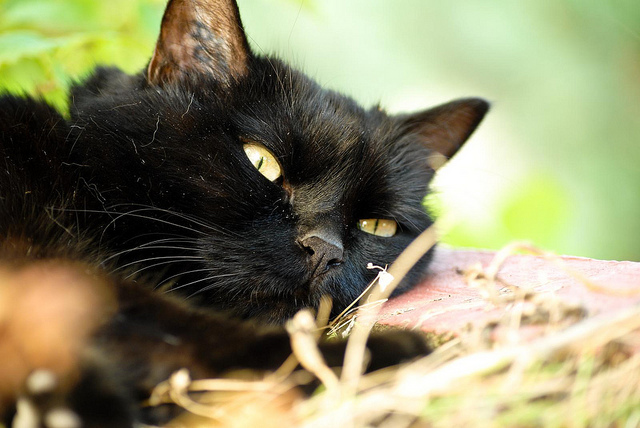People Discriminate Against Cats Based on Color, Too
People ascribe different personality traits to cats of different colors, a bias that skews adoption rates

Why don’t you love me? Photo: Mathias
We’re just a week from Halloween, which means that owners of black cats across the country are starting to keep a nervous eye on their loving pets, lest they be subjected to holiday-inspired pranks. Around this time of year, says University of California, Berkeley, black cats “can be associated with bad luck and witches,” a prejudice that persists not just for a few months in the fall, but actually has important consequences year-round for the fates of these felines. People ascribe certain personality traits to cats of different colors, a bias that skews adoption rates and leaves some cats—particularly black ones—in the lurch.
Surveying cat owners, Mikel Delgado and colleagues found that people are “more likely to assign positive personality traits to orange cats and less favorable ones to white and tortoiseshell ones. Orange cats were largely regarded as friendly, white cats as aloof and tortoiseshell cats as intolerant.”
“What about black cats?” asks the Huffington Post.
The survey showed that they’re less likely to be adopted than cats of other colors–a big deal, since approximately 21 percent of the 86.4 million pet cats in the U.S. were adopted from shelters, according to the Humane Society of the U.S. What’s more, black and other dark-colored cats are more likely to be euthanized.
The scientists remind that there is little evidence that cats of different colors behave differently than one another, but the effects of our color-associated prejudices are all too real.
More from Smithsonian.com:
The Genetics Behind Venus, the Mysterious Two-Faced Cat
/https://tf-cmsv2-smithsonianmag-media.s3.amazonaws.com/accounts/headshot/smartnews-colin-schultz-240.jpg)
/https://tf-cmsv2-smithsonianmag-media.s3.amazonaws.com/accounts/headshot/smartnews-colin-schultz-240.jpg)